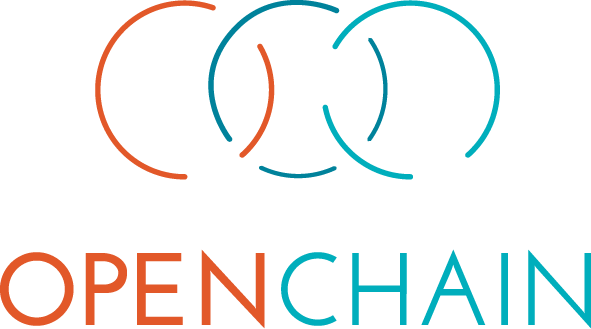
Newsletter – Issue 28 – August 2019
Arm and Western Digital Corporation, Platinum Members of the OpenChain Project and key participants in the global supply chain, today announce conformance with the OpenChain Specification. Qualcomm Technologies, Inc., Platinum Member and founding contributor of the OpenChain Project, today announces expanded conformance to the latest version of the OpenChain Specification.
OpenChain @ Partners
The OpenChain Project is delighted to announce that PwC Germany is the latest OpenChain Partner organization. The OpenChain Project has a diverse, global partner network that is expanding rapidly across multiple continents. This supports our mission to ensure every organization of every size can adopt our industry standard.
OpenChain @ Case Studies
The OpenChain Project is delighted to announce the immediate availability of our latest case study. This case study explains how third party certification works in the context of the OpenChain Project. This optional process, involving an audit of conformance by a third party, can be used by companies that want to obtain a formal certificate of conformance to our industry standard.
OpenChain @ In The News
On August 29th 2019 the OpenChain Project was featured in a blog post by Mark Gisi about how OpenChain certification aids open-source transparency for identifying security vulnerabilities.
OpenChain @ Events
OpenChain @ TechExeter Conference on 11th Sept 2019
Paul McAdam, Director at Source Code Control, will be hosting a workshop exploring the Equifax scandal. This hack resulted in costing more than $4bn yet was started by a failure to manage a single Open Source component.
OpenChain Talk Announced for Open Source Summit Europe – 29th October
Fukuchi San from Sony will be sharing ‘Experiences Building a Local Open Source Community via the OpenChain Project’ on Tuesday, October 29 @ 11:30 during Open Source Summit Europe.
OpenChain Actively Promoted @ COSCUP Taiwan Thanks to MOXA – 17-18 August
SZ Lin and his colleagues at MOXA will actively promoting the OpenChain Project via their sponsorship and their physical presence at the Taiwanese COSCUP Conference on the 17th and 18th of August.
OpenChain @ TechMatrix Open Source Seminar Tokyo – 4th September
OpenChain will be featured at the forthcoming TechMatrix Seminar on open source compliance to be held in Tokyo on the 4th of September. This event will include case studies from Olympus, FOSSID and TechMatrix.
Open Source Compliance Workshop Taipei 2019
On Friday the 27th of September the OpenChain Project, Open Culture Foundation and OSLN.tw will host an open source compliance workshop in the heart of Taipei. This event will focus on practical business solutions to open source compliance management. All parties are welcome to attend.
OpenChain @ Work Groups
The outcomes of the 10th meeting of the OpenChain Japan Work Group on the 16th of July are now available. We had 84 participants from 44 companies present, including our special guest SZ Lin from MOXA, Taiwan.
The OpenChain Project regular First Monday call video minutes are now available:
The OpenChain Japan Work Group has announced the August Meeting Schedule. Four Sub-Groups will convene to discuss milestones. Outcomes will be presented at the 11th OpenChain Japan Work Group event on September 19th at the Olympus offices. These meetings will be held in Japanese and everyone is welcome to join.
The OpenChain Korea Work Group has announced details of their forthcoming third meeting on Wednesday the 4th of September 2019. It will take place from 3pm in the B1 meeting room on the 19th floor of SK T Tower. This meeting will be held in Korean. All parties from open source user companies are welcome to attend.
The OpenChain Japan Work Group has announced the latest participation metrics. The recent meeting #10 hosted by Fujitsu had 84 individuals from 44 companies in attendance, marking our largest main event yet. Meanwhile, the OpenChain Japan mailing list continues to grow, with 159 participants from 68 companies subscribed. All parties are welcome to join the OpenChain Japan Work Group mailing lists and meetings.
The OpenChain Project will host a workshop on the 20th of August adjacent to the Linux Foundation Legal Summit and Open Source Summit North America.
The OpenChain China Work Group confirmed their first meeting. It will be held on 25th of September @ Huawei in Shenzhen
Mishi Choudhary & Associates, the India law firm partner of OpenChain Project, is hosting the first OpenChain India Working Group Meet-Up in Bengaluru on September 7, 2019.
On the 13th of August the OpenChain Tooling Work Group held their first meeting.
The OpenChain Korea Work Group has announced details of their forthcoming third meeting on 4th of September 2019. It will take place from 3pm at Korea Telecom in Seoul.
OpenChain @ Materials and Case Studies
Great Open Source Compliance For Everyone – Version 11 are introduction slides for the OpenChain Project with extensive speaker notes. They are intended to both provide context for the OpenChain industry standard and to enable anyone to help share the purpose, value and outcomes of the project and community.






